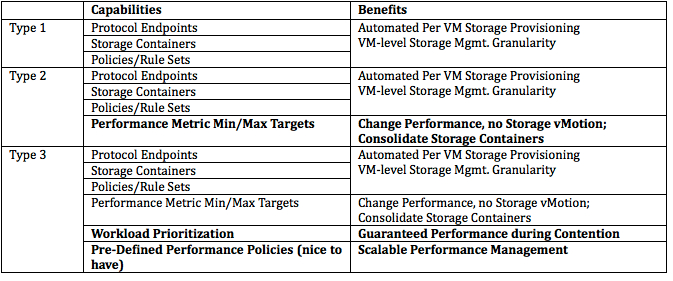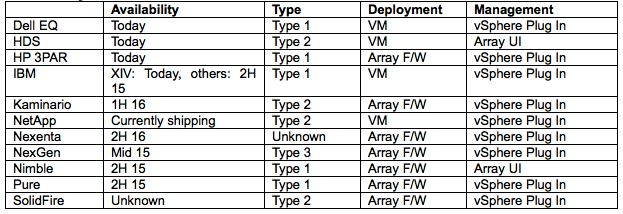Implementation of VMware VVols by Different Vendors
Taneja Group survey
This is a Press Release edited by StorageNewsletter.com on May 27, 2015 at 2:46 pmVMware Virtual Volumes (VVols) is one of the most important technologies that impacts how storage interacts with VMs.
In April and May 2015, Taneja Group surveyed eleven storage vendors to understand how each was implementing VVols in their storage arrays. This survey consisted of 32 questions that explored what storage array features were exported to vSphere 6, how VMs were provisioned and managed.
The analysts were surprised at the level of differences and the variety of methods used to enable VVols. It was also clear from the analysis that underlying limitations of an array will limit what is achievable with VVols. However, it is also important to understand that there are many other aspects of a storage array that matter-the VVol implementation is but one major factor. And VVol implementation is a work in progress and this represents only the first pass.
We categorized these implementations in three levels: Type 1, 2 and 3, with Type 3 delivering the most sophisticated VVol benefits. The definitions of these three types is shown below, as is the summary of findings.
Most storage array vendors participated in the survey but a few chose not to, often due to the fact that they already delivered the most important benefits that VVols deliver, i.e. the ability to provision and manage storage at a VM-level, rather than at a LUN, volume or mount point level. In particular that list included the hyperconverged players, such as Nutanix and SimpliVity but also players like Tintri.
Summary of Classification
Summary Table
Full report is available from Taneja Group for a fee.













 Subscribe to our free daily newsletter
Subscribe to our free daily newsletter

